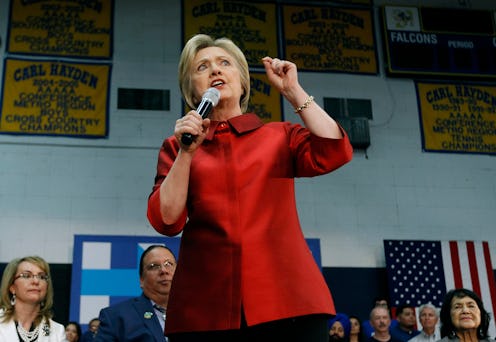News
Election 2016 Says, Hello Wisconsin!
Primary season is going quickly, with just 24 contests remaining. The next one to keep your eyes open for is Tuesday's Wisconsin primary. The state holds 42 delegates on the Republican side and 96 for the Democrats. As candidates prepare to take the Badger State, are Wisconsin's primaries winner-take-all? It looks to be a tight contest for Republican candidates heading into April 5.
For Republicans, the Wisconsin primary is mainly winner-take-all. Of the 42 delegates at stake, 24 will be allocated based on results in eight congressional districts. The remaining 18 are at-large delegates, who will be bound to the candidate who wins the most votes in the statewide contest. According to the most recent polling data for Wisconsin, Texas Sen. Ted Cruz leads with 33 percent of voter support, followed by Trump with 32 percent and Ohio Gov. John Kasich with 23 percent.
Wisconsin Gov. Scott Walker endorsed Cruz last Tuesday, telling Newsradio 620 WTMJ radio host Charlie Sykes, "I encourage other Republican presidential candidates to consider doing the same so that the voters can focus on a limited number of candidates who can offer a positive, conservative alternative to the current frontrunner."
None of the Democratic primaries or caucuses are winner-take-all, which means that all delegates are distributed in proportion to the vote. On the Democratic side of the race, there are 96 delegates at stake, 86 of whom are pledged and will be allocated based on the vote. Fifty-seven of the delegates are allocated on a proportional basis, also based on primary results in the eight congressional districts. Similarly to the Republican delegate allocation, 29 of the remaining delegates will be allocated based on the statewide vote. Leading up to the primaries, former Secretary of State Hillary Clinton is the projected winner of the state's Democratic primary, with a margin of 55 percent voter support to Vermont Sen. Bernie Sanders' 42 percent.
Sanders has garnered a lot of support from young voters, especially those between the ages of 18-29, throughout the primaries so far. However, Wisconsin voter laws require a valid photo ID in order to vote in person, which could lead to a similar outcome as the results of North Carolina's primaries on March 15. Because of their new voter ID laws, 5 percent of registered voters in the state did not have a valid ID when the primaries came around, which affected student voters the most.
As the Wisconsin primaries are fast upon us, make sure to check for the location and time of your polling place if you'll be voting in the state.
